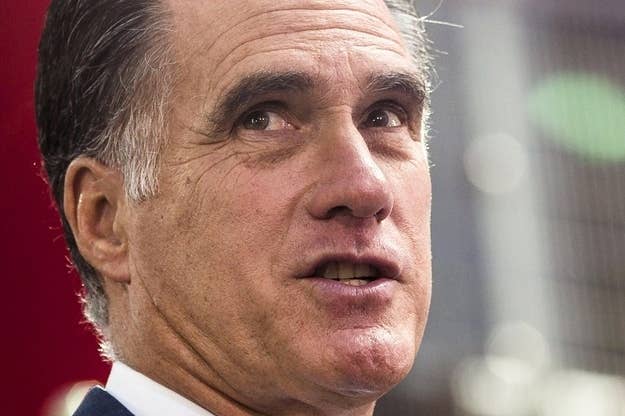
Mitt Romney has lost each of the last 40 days, each day in its own way. Now his campaign, finally reckoning with a summer of effective fundraising and disastrous messaging, is hoping the waters will recede, and looking for a safe mountaintop on which to land his weathered ark.
Romney’s aides — resigned to the current news cycle until after the Olympics end — said in interviews this week that they see a safe landing: The vice presidential announcement, followed up by the Republican convention, offer Romney a chance to retake control over his own narrative.
In the meantime, aides are left to do what they can to mitigate the damage. They are hyping the impending running-mate selection and deploying the short-listers across swing states to stump for the candidate. Romney’s team is also promising another charm offensive after several public flaps with the press, tasking Kevin Madden, Romney’s affable 2008 spokesman, to occupy a more hands-on role as the campaign enters its final stretch. The campaign is also stepping up its efforts on defense, bringing on Michele Davis, a former top Treasury aide, to deal with the gaping wound that has been Bain Capital.
Asked how the campaign was planning to recover from weeks of lost news cycles in July, Romney campaign senior adviser Eric Fehrnstrom did not contest the characterization, but said it wouldn’t ultimately matter.
"This campaign is not like a baseball game where you evaluate the score after every inning," he said.
Still, implicit in that response is an acknowledgement of how difficult the deluge has been. The trouble began precisely at midnight on June 21st, when the Washington Post reported that Bain Capital-owned companies moved jobs overseas, a report followed in what appeared to be seconds by a prepared statement from Obama adviser David Axelrod.
The Romney campaign’s slow response to that story, whose muddied distinction between “outsourcing” and “offshoring” it furiously disputed, was only magnified by the campaign falling into a trap apparently set by the Obama campaign on precisely when Romney quit Bain. SEC documents obtained by The Boston Globe listed him as “sole stockholder, chairman of the board, chief executive officer, and president” years after he was said to have left the company. The campaign’s spin — that Romney was still listed as CEO, but not actually involved in Bain’s day-to-day business — was strained at best.
In the same period, the Supreme Court upheld ObamaCare and the individual mandate against most expectations, providing a major boost to the president.
Mitt Romney returns to campaigning today in Colorado following a stumbling foreign trip that capped the toughest month for the candidate since the dog days of the Republican primary. As Democrats openly celebrate Romney’s trip to England, Poland, and Israel — using it to call into doubt for the first time Romney’s readiness to be commander-in-chief — polls show the rocky month has taken its toll on the Republican. Despite remaining neck-and-neck with Obama nationally, he’s down by at least six points in three decisive swing states according to a Quinnipiac University The New York Times swing state poll.
The saving grace, according to Fehrnstrom, was the sour economy.
“All the polling confirms, the overwhelming issue for voters is the economy,” he told BuzzFeed. “The economic reports we’ve seen over the past month have all been negative: monthly jobs numbers are weakening, GDP is shrinking, consumer confidence is falling and retail sales are coming in lower than expected. We are on the wrong track and the bad Obama economy is a disaster for millions of Americans who are either out of work, underemployed or grown so frustrated with the lack of jobs that they've given up looking. That is the issue that will decide the election in November."
Other Republicans are split between two conflicting bits of conventional wisdom: That the events of the summer, before swing voters start paying attention, do little to effect the outcome of the race; and that the narratives set in the summer will determine the fall.
Romney’s allies hope the former is true.
"The bedwetting caucus around the foreign trip is a bit much," said Steve Schmidt, campaign manager of John McCain’s 2008 campaign. "It’s still fundamentally a very close race. Mitt Romney is running a well-capitalized campaign, in a terrible economy that is getting worse."
"Do you want to have a difficult foreign trip in the way they had, no you don’t, but if you have to have a difficult foreign trip, this was the time to have it," Schmidt said. The reality is, if you don’t have any mistakes in September and October, people tend to forget the mistakes you made in July and August."

